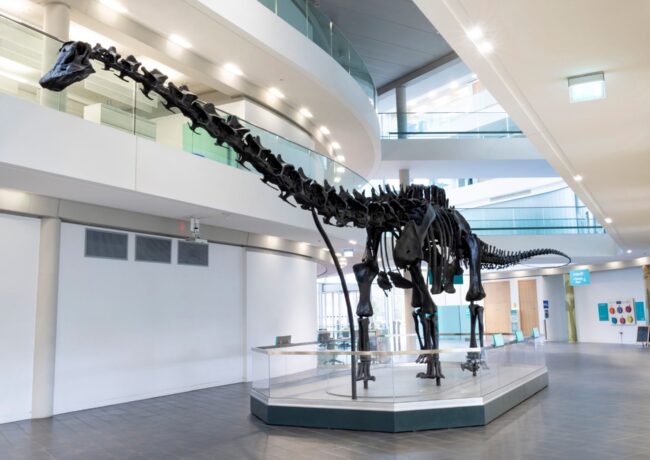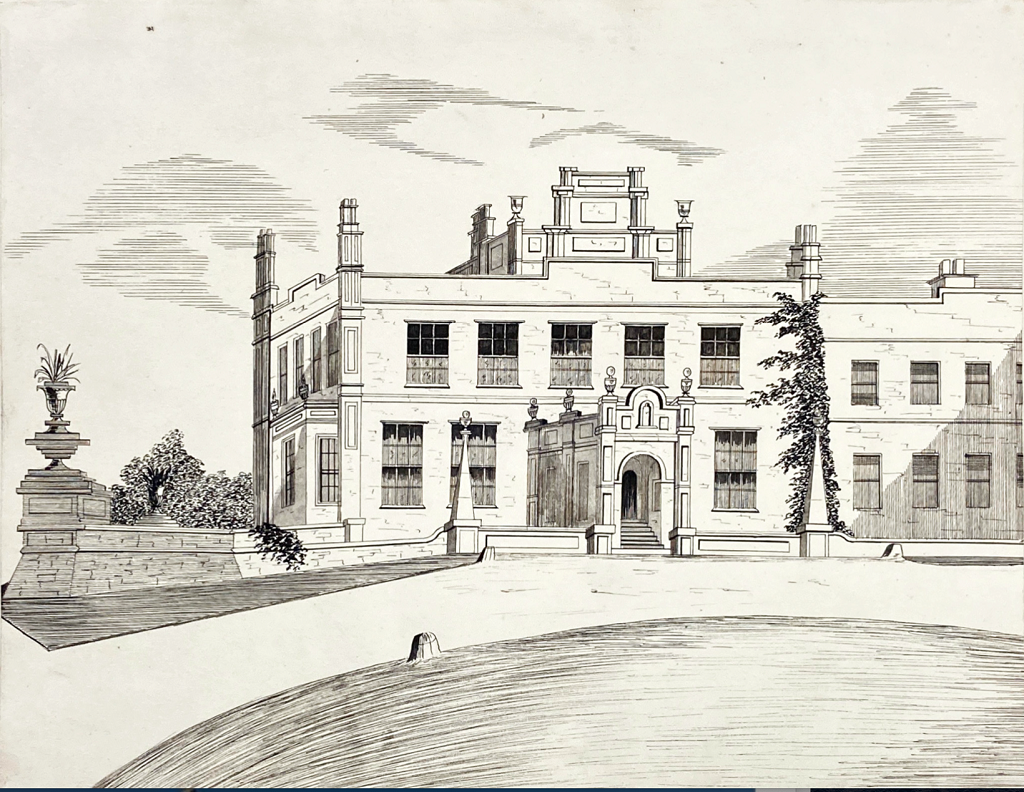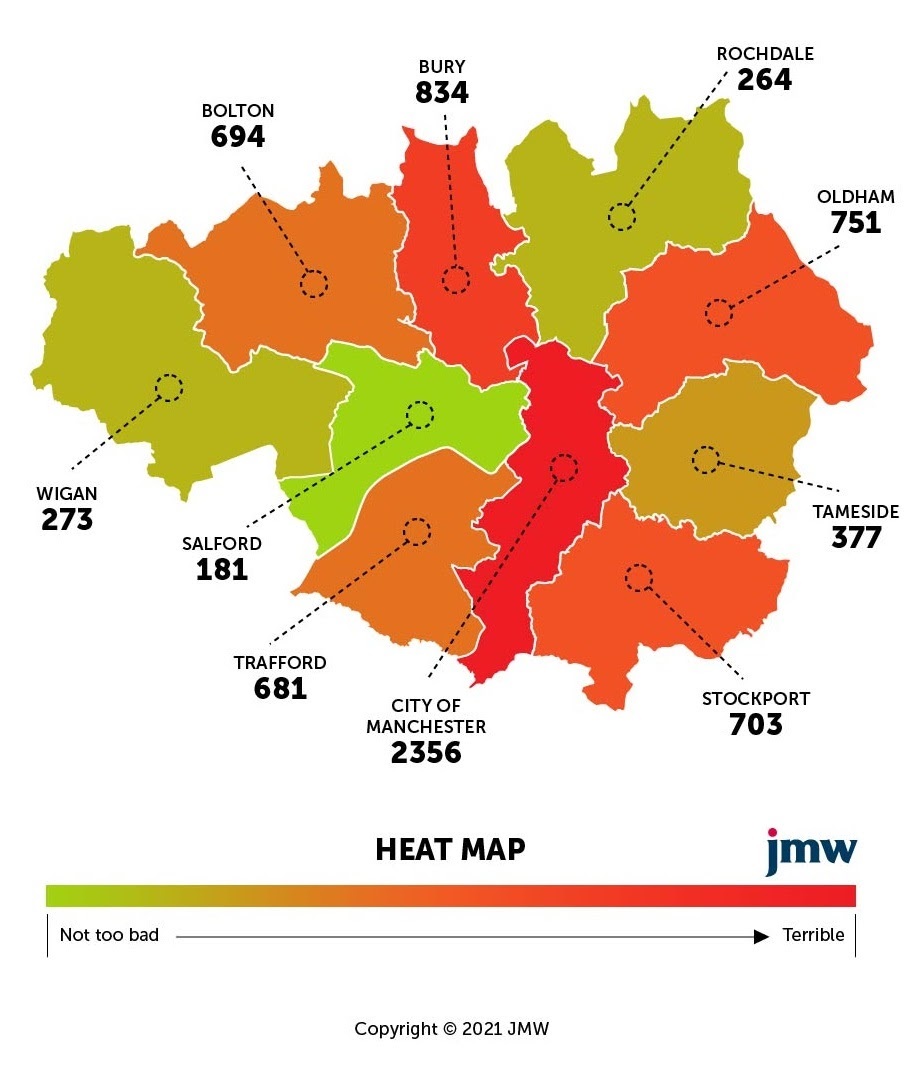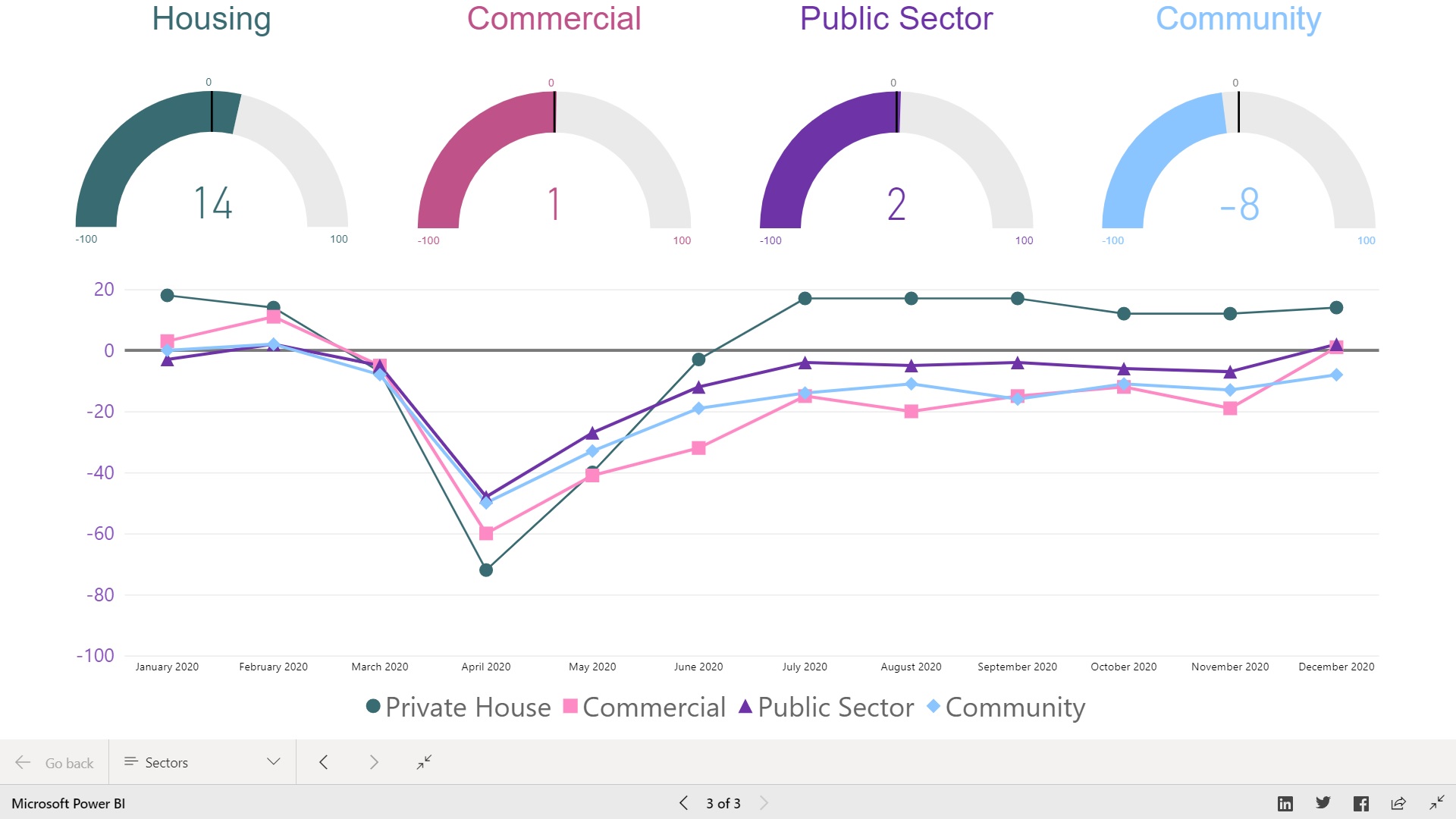THING OF THE WEEK
DEEPLY… Dippy the dinosaur was on the box last night as part of Channel 5 documentary Natural History Museum: World of Wonder’. Episode two featured the visit of the 21-meter diplodocus cast last year to Number One Riverside in Rochdale, the council HQ, as part of a national tour. Dippy in Rochdale opened to visitors for short spells in February and the summer before moving on. Channel 5 ain’t no biggie for Dippy, he was on Blue Peter last year.
TOP DRAW… More than 100 original drawings by famed country house architect Lewis Wyatt, whose designs remodelled Cuerden Hall in Chorley in the nineteenth century, have been discovered in the Canadian Centre for Architecture in Montreal. New owner, developer Colin Shenton, working with historians Alison Whitham and Joan Langford, unearthed the 122 drawings as he begins working with heritage architect Purcell on a book about the hall, in which the Wyatt drawings will make a notable chapter. Shenton said the Canadians don’t know how the drawings ended up there. An exhibition at Cuerden Hall is planned, copyright negotiations and pandemic restrictions pending.
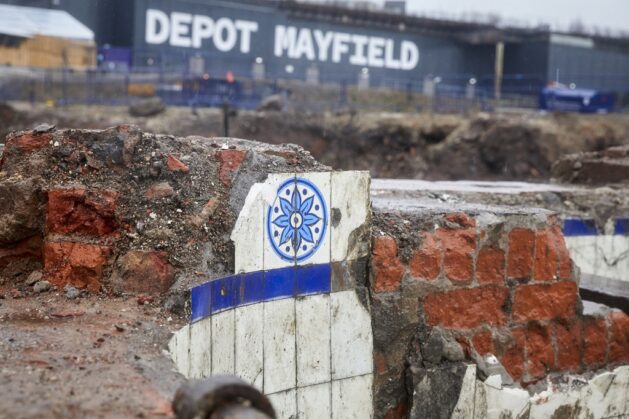
SPLASH… THING got quite the history lesson this week, talking to Salford Archaeology project manager Graham Mottershead about unearthing the remains of Manchester Public Baths at the Mayfield development site. Many of the ornate mosaic tiles from the two pools at the Victorian bath house that opened in 1857 are being recovered for reuse in the £1.4bn regeneration project and, although the archaeologists knew what they were looking for, they did not expect to find the artefacts in such good nick. “I’ve done a few bath house digs in my time, but the only one in comparable condition was Leaf Street Baths in Hulme,” Mottershead said. The blue and white tiles pictured are from the first pool, which was for middle-class bathers, while the poorer customers had to use the second pool with plain black and white tiling.
Apparently, guidance on use of the ‘commoners’ pool’ suggested people visit at dawn, otherwise by mid-morning the water would be brown with dirt – so grim were the living conditions of Manchester’s factory working class in the 1800s. It was the prevalence of diseases like cholera and typhoid that sprang from the lack of clean water for poverty-stricken workers that prompted the disgusted middle class to set up bath house companies to build and oversee the facilities. In true bureaucratic form, it took decades for the public authorities to actually step in and help. The next site to be explored by the University of Salford archaeologists at Mayfield will be that of the historic dye works founded by 18th century industrialist Thomas Hoyle.
POTTY… Yay for today, what is National Pothole Day! To celebrate, lawyer JMW has produced some stats. There are currently more than 7,000 reported potholes bothering users of Greater Manchester’s roads. That beats Lancashire (4,771), Cheshire (3,363), Cumbria (1,756) and Merseyside (1,710). JMW’s cycling injury team used data from fixmystreet.com, which revealed that there were 7,114 reported open pothole cases in the region. The top three worst-affected boroughs are Manchester (2,356), Bury (834) and Oldham (751). The number in GM has increased from 5,000 in 2018. “This is not good enough,” said Nadia Kerr, partner at JMW. Quite.
WORK FREEZE… Next time you complain about having to leave the house in this cold weather spare a thought for the folks called to undertake this site visit. Manchester-based fire engineer, OFR Consultants, has been reappointed for 10 years to assist the Antarctic Infrastructure Modernisation Programme, which includes upgrading the UK’s 50,000 sq ft Rothera Research Station, where a wide range of scientific research, including into biosciences, geosciences, glaciology and meteorology is carried out. Yes that’s Antarctica, the coldest, windiest and driest continent on the planet. Over to you guys, OFR, THING will be right behind you, applauding from the sofa.
VIBES… Architects in the North are more positive about future workload than they have been since 2019, according to the RIBA, and the North is the most positive region in the country. Overall, across all regions, the December survey found that while 20% of practices expected a decreasing workload in the coming three months, 29% expected workloads to increase. Just over half expected workloads to hold steady.


